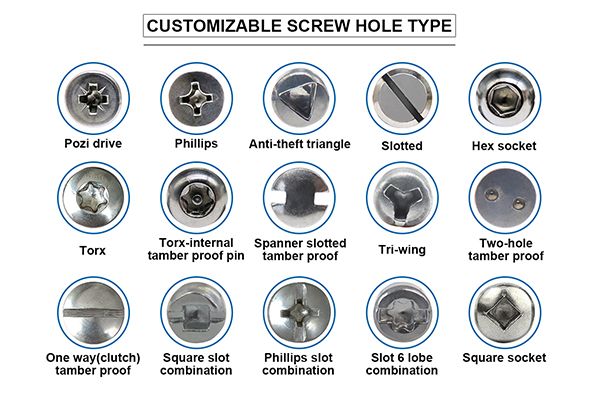VIDEO & CENTER


304 stainless steel screws have many advantages, but there are some limitations. The following is an analysis of the advantages and limitations of 304 stainless steel screws:
Advantages:
- Good corrosion resistance: 304 stainless steel screws have excellent corrosion resistance and can resist most common corrosive media, including acid, alkali, salt and so on. This makes it excellent in humid environments or corrosive applications.
- High strength: 304 stainless steel screws have high strength and can withstand large tensile and shear forces. This makes it reliable and stable in applications requiring high strength.
- Good machinability: 304 stainless steel screws have good plasticity and weldability, easy to carry out cold processing, hot processing and welding and other processing processes. This allows it to meet the needs of a variety of shapes and sizes.
- Versatility and wide application: Because 304 stainless steel screws have good corrosion resistance, high strength and good processing performance, it is widely used in various fields, including construction, machinery manufacturing, automotive, aerospace and so on.
Limitations:
- Limited high temperature resistance: the corrosion resistance and mechanical properties of 304 stainless steel screws in high temperature environments will be affected. At temperatures above 800°C, problems such as intergranular corrosion and material deformation may occur, so caution should be used in high temperature environments.
- Limited strength: Although 304 stainless steel screws have high strength, in some high-strength applications with special requirements, it may be necessary to choose higher strength stainless steel materials.
- Not suitable for strong acid and strong alkali environment: 304 stainless steel screws have good corrosion resistance, but for strong acid and strong alkali and other corrosive media, its corrosion resistance may not be ideal. In these environments, a more corrosion-resistant stainless steel material may need to be selected.
In summary, 304 stainless steel screws have many advantages, such as good corrosion resistance, high strength and good machinability, and are widely used in various fields. However, it also has some limitations, such as limitations in high temperature environments and highly corrosive environments. When choosing screw materials, comprehensive consideration needs to be made according to specific requirements and the environment













